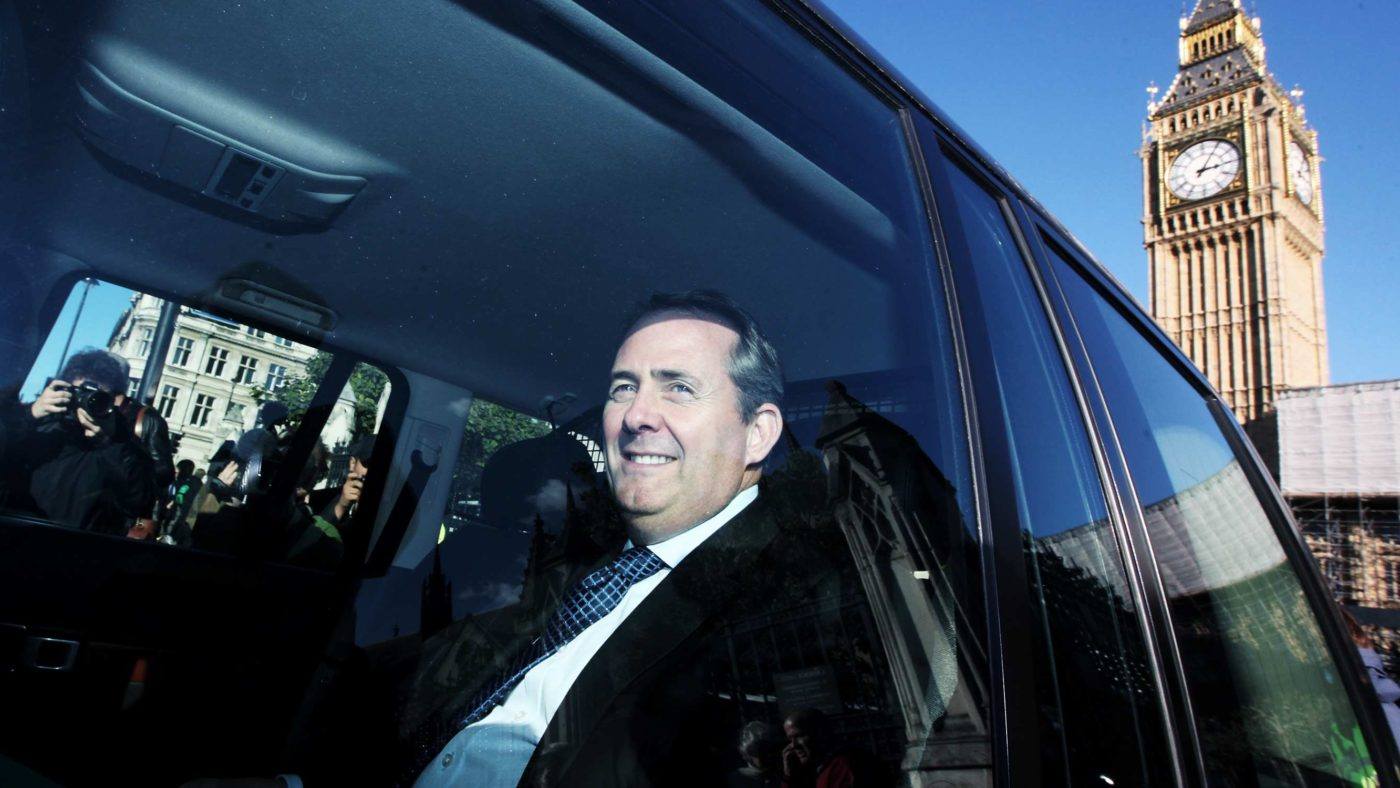This week, the House of Commons voted to approve the Article 50 Bill. Come March, David Davis will be locked in a room with Michel Barnier for two years of negotiations, at the end of which we’ll either have a) a deal, b) a transitional deal, or c) no deal at all.
There are some who argue that, during this period, Britain should put ambitious new trade discussions on the back burner. Our EU treaty obligations ban us from negotiating or signing anything while still a member, so the priority has to be making the transition as smooth as possible.
That means making sure we’re properly set up at the WTO, and that we can replicate existing EU arrangements with countries like Mexico and South Korea, rather than focusing on anything new.
In any event, they add, other countries will want to know the shape of our EU deal before starting negotiations – and Europe is going to be even more cheesed off if we start making cow eyes at Washington or Canberra before we’ve finalised the divorce with Berlin and Brussels.
This is an approach to trade policy that minimises the risks. But it’s also one that minimises our opportunities.
What if we took another path? What if Liam Fox was instructed not just to prepare the ground, but to get as many agreements as possible in a ready-to-sign state by March 2019?
There are several reasons why this makes sense. We already know we will be leaving the customs union – so whatever our arrangements with Europe, we will be willing and able to sign separate deals with others.
Also, the legal situation isn’t actually cut and dried. As Francis Hoar of Lawyers for Britain suggests, the ban on negotiating while an EU member is about ensuring that the EU speaks with one voice.
There may well be legal leeway for deals that would only take effect once we weren’t an EU member. And even if the ECJ takes a hard line, there is scope at the very least for extensive preparatory discussions.
The argument that this might annoy Europe is more convincing. But it might also increase our leverage. And because it will be creating trade that didn’t exist before, it won’t result in any damage to continental economies (unlike, say, cutting our business taxes).
Earlier this week, I went to the Legatum Institute for a briefing with its Special Trade Commission – a group of experienced trade negotiators from around the world, led by Shanker Singham.
We don’t realise, they kept saying, what a strong position we’re actually in. The world is crying out for leadership in free trade.
It wants deals that go beyond just tariffs (which are pretty low) to truly knit economies together. Deals that eliminate domestic market distortions, that open markets to services as well as goods (which is, obviously, the UK’s strong point).
Yet deals of this kind take time to negotiate. If we only start work in 2019, it could be years before we’re in a position to sign anything that would make a difference to our economy. If we haven’t landed an agreement with the EU, those will be years of pain and economic dislocation.
It’s not just about signing deals, though. As Singham pointed out, there are all sorts of products that Europe imposes tariffs on, to suit its various interest groups, that we don’t actually produce.
So the moment the clock strikes in 2019, why don’t we eliminate tariffs on oranges and coffee beans and all the rest?
There are three advantages to this idea. The first is that there are no domestic interest groups to complain. The second is that it’s really cheap.
At the moment, Britain collects roughly £3 billion a year in customs duty on non-EU products – 75 per cent of which gets handed over to the EU. Post-Brexit, we could use that money to fund the NHS, as Vote Leave promised. Or we could forgo part of it and give everyone a Brexit tax cut every time they visit the supermarket.
Which brings me to the third advantage: that getting trade deals and tariff reductions ready to go would show people that life outside the EU can work. That if you’re going to go through the trauma of hard, full, clean Brexit, you’re going to get the benefits too.
I’m not saying we should break the law, or needlessly upset the Europeans, or that we don’t need to bother about keeping the closest possible ties with our neighbours.
But we also need to show, from day one, how a more global Britain will be a better one too.
This article is taken from CapX’s Weekly Briefing. Sign up to that, or to our daily bulletin, here.


